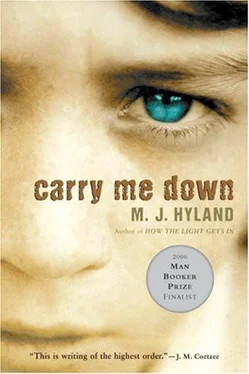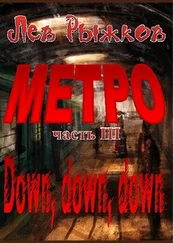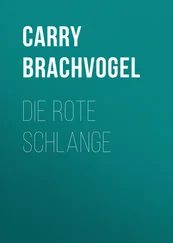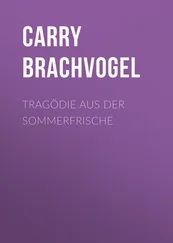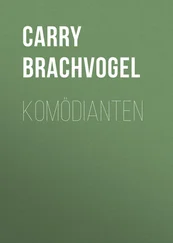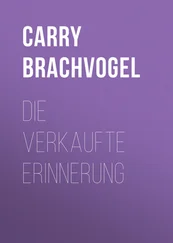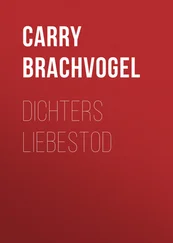After an hour of driving I start to feel cold in the back of the car. ‘I’m cold,’ I say.
‘OK,’ says my mother. ‘We’ll stop and get the picnic blanket out of the trunk.’
‘Not yet,’ says my father.
It is pitch dark when we stop for our tea in a hotel just beyond the Wicklow mountains. My father chooses a table near the back corner. I can’t look at him. I concentrate on looking around.
The hotel smells of beer and chips. The tables are covered in white cloths, and the heavy cutlery is neatly lined up. The glasses are turned over and the salt-and-pepper shakers are full. The lamps make it feel as though it is late at night. There is a packet of Tayto crisps in the middle of the floor, but nobody picks it up. Eventually, an old man kicks the packet, and the crisps fall out and become sharp crumbs on the carpet.
There’s a noisy little girl playing with the front door. She runs in and out, and when she leaves the door open the people at the end of the bar complain about the draught. Each time the door is left open, the little girl’s brother gets up and closes it. Nobody asks him to; he just does it, and he leaves his meal to go cold on the table.
I pay attention to all the details: what the little girl is wearing, and the colour of her hair; what the people say when they shout out for her to close the door and what the people do with their hands when they are shouting at her. I decide that for the rest of our journey I will test myself to see how much of the hotel I can remember.
After we’ve eaten, my father talks to the barman about Dublin, and my mother points to a map on the wall to show me where we have travelled from.
‘I know where we’ve come from,’ I say, ‘and I know where Dublin is.’
‘Of course you do,’ she says. ‘I wasn’t sure if you’d remember. It’s a long time since you’ve been.’
My mother gets the rug out of the trunk and, before we drive away, I try my best to curl up in the back seat, but I don’t fit, and my knees hit my father’s seat. I sit up instead with my back against the passenger door.
My mother puts the rug over me and tucks it in around my arms. My father looks at me in the rear-mirror, bites his lip, and starts the engine.
‘We need to go,’ he says.
My mother gets in the passenger seat and does not speak to him again.
I can’t sleep. I wonder what will happen to me now, where I will go to school and whether I’ll ever see Mr Roche or Brendan or Crito again. I wonder whether the stolen money will be found. ‘Then what?’ I ask my mother. ‘Will Granny come and visit us?’
‘No questions, John. Not yet.’
‘But what will happen? What about school?’
‘We’ll see,’ she says.
I stop asking questions and fall asleep in the back seat of the car. I don’t wake again until we arrive in Dublin and reach the gates of Phoenix Park.
My father says, ‘There’s a lion in the zoo in that park.’
‘And tigers and an elephant,’ says my mother.
I’d like to go to the zoo. I want to see a tiger. I read once about a Siberian tiger that escaped from his cage and ran amok in a city until he was shot in the hind leg with a tranquilliser. I want to look at the cages in the Dublin zoo and see what would be involved in getting out. I think Houdini once escaped from a monkey cage in a zoo. I hope they have packed the edition that has that story in it.
Aunty Evelyn greets us at the door of her three-storey terrace house, which is above the basement bookshop that she manages. She is wearing a big black coat over her nightdress and Uncle Gerald stands behind her and says nothing. He rarely speaks and it is easy to forget he is there. He once came to visit us in Gorey with Aunty Evelyn and the next day I asked my mother, ‘Why doesn’t Uncle Gerald ever come to visit?’
My mother laughed. ‘He was here yesterday,’ she said. ‘You told him that awful knock-knock joke. Knock Knock. Who’s there? I diddup? I diddup who?’
I laughed. ‘Oh, yeah. And he said, “You’re a dirty boy.”’
‘Yes, he did.’
‘But I’m not, am I?’
‘Clean as a whistle,’ she said.
In the long, narrow street where Aunty Evelyn lives there are no lights on in any of the houses and three men coming out of the hotel two doors down from the bookshop are singing.
I remember the street and Aunty Evelyn’s house from the time we came to stay when I was seven. But I don’t remember her house being painted dark red, like dried blood.
Aunty Evelyn takes hold of my hand. ‘Cheer up. You look like somebody just stole your brand new bicycle,’ she says.
‘Maybe they did,’ I say.
She pulls my hand. ‘Come and I’ll show you to your bed.’
On the way up the stairs she suddenly stops and looks over her shoulder at me. ‘You’ll share with your cousin Liam,’ she says. ‘He’s not in much of a talking mood at the moment, but he won’t bite.’
Liam is fifteen and, even though he’s my first cousin, I don’t know him very well.
‘I don’t care.’
We get to the third floor, the top floor, and turn left into a small, dark bedroom. Liam is lying on his back on his bed, with his hand down his loose tracksuit pants. His room smells like sour milk and his hair is dull yellow, like wet hay.
‘Howya,’ he says, without moving.
He doesn’t remove his hand from his pants and it rests there, doing nothing; keeping warm perhaps. The heating is off, and the house is icy cold.
‘Right, so,’ says Aunty Evelyn. ‘I’ll leave you two alone now. But don’t make too much noise. You’ll wake the twins.’
I put my case down next to Liam’s bed and since he doesn’t look at me, and doesn’t seem to want me in his room, I go back down the stairs to the bathroom on the first floor. There are spots of urine on the toilet seat and on the floor, and the bathroom smells like Crito’s box when her blanket hasn’t been changed for a long time. I stand over the toilet and stare into the water. There’s one pence in the bottom and a bronze stain around it. I take two pence from my pocket and, as I throw it in, I say, ‘Get me home to Gorey. Get me back there within one week. Please.’
I find my mother. She is in the only bedroom on the first floor, the same floor as the bathroom, living room and kitchen.
She is unpacking her case on the floor next to a single bed, which is covered in a yellow eiderdown. The only other thing in the small room is a small desk and a typewriter.
‘Hello,’ I say. ‘Where will Da sleep?’
She looks up at me and smiles. ‘I’m busy this minute, John. Go back up and unpack your case.’
I go to Liam’s room and unpack. He doesn’t talk to me. He sits up in bed eating a packet of crisps. I have the five most recent editions of the Guinness Book and most of my clothes. When I’ve put my books and my clothes on top of Liam’s chest of drawers, I sit on the bed next to him and still he doesn’t speak.
Half an hour later my father comes in. ‘Come down to the kitchen for a chat.’
‘I don’t want to,’ I say.
‘You will,’ he says.
I follow him down the stairs to the first floor.
* * *
My mother makes a pot of tea and Aunty Evelyn wipes the placemats on the kitchen table with a smelly dishrag. The table is dirty and covered with schoolbooks, fish-and-chip wrappings, and milk bottles. I sit down and clear a space in front of me, knocking a pencil to the floor. I don’t pick it up.
‘You’re going to need to be patient,’ says my mother as she uses her hands to gather crumbs from the table.
‘Patient about what?’ I ask.
‘There’ll be lots of changes, and some of them will take time,’ she says, as she drains the last of the milk from a bottle.
Читать дальше
